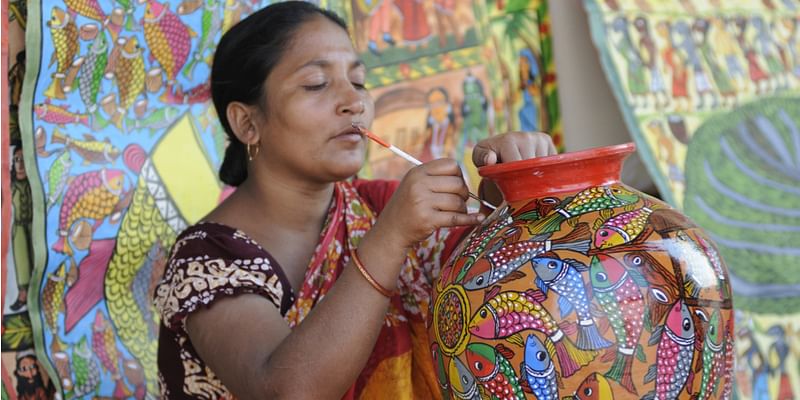Encouraging Rural Artisanship in Modern Times

In today''s fast-paced and digitally-driven world, the significance of preserving traditional crafts and promoting rural artisanship cannot be overstated. Rural artisans are the torchbearers of cultural heritage, creating unique and authentic handicrafts that reflect their communities'' identity and history. However, with the rapid urbanization and modernization, rural artisanship is facing numerous challenges. In this blog, we will explore the importance of encouraging rural artisanship in modern times and discuss various ways to support and promote these talented artisans.
Preserving Cultural Heritage: Rural artisanship is deeply rooted in local traditions, passed down through generations. It encompasses a wide range of crafts, such as pottery, weaving, wood carving, metalwork, and more, each with its own distinct artistic styles and techniques. These crafts not only contribute to the socioeconomic development of rural areas but also serve as a significant part of our cultural heritage. By supporting rural artisans, we play a vital role in preserving and safeguarding these valuable traditions from being forgotten or lost.
Economic Empowerment: Encouraging rural artisanship can have a transformative impact on local economies. Many rural artisans often face financial hardships due to lack of market access, unfair pricing, or competition from mass-produced goods. By promoting their crafts, we create opportunities for economic empowerment, enabling artisans to earn a sustainable livelihood and improve their standard of living. This, in turn, leads to overall rural development and helps alleviate poverty in these communities.
Promoting Sustainable Practices: In an era where environmental consciousness is crucial, rural artisanship holds significant potential for promoting sustainable practices. Traditional crafts often involve the use of natural and locally-sourced materials, reducing the carbon footprint associated with mass production and transportation. By encouraging and supporting these artisans, we contribute to the preservation of traditional knowledge and skills, ensuring that sustainable practices continue to thrive and inspire future generations.

Reviving Cultural Tourism: Rural artisanship can be a catalyst for cultural tourism, attracting visitors seeking authentic experiences and unique handmade products. When rural artisans are given the platform to showcase their crafts, it not only creates opportunities for cultural exchange but also stimulates local economies through tourism-related activities. This exchange of ideas and exposure to different cultures fosters a deeper appreciation for the richness and diversity of our world.
Ways to Encourage Rural Artisanship: Market Access and Fair Trade: Establishing platforms and channels to connect rural artisans with national and international markets can significantly boost their visibility and sales. Fair trade practices ensure that artisans receive fair compensation for their work, encouraging them to continue practicing their craft.
Skill Development and Training: Providing training programs and workshops that focus on skill enhancement and design innovation can empower rural artisans to adapt to changing market trends and improve the quality of their craftsmanship.
Collaboration and Mentorship: Facilitating collaborations between rural artisans and designers, artists, or entrepreneurs can encourage the fusion of traditional techniques with contemporary designs, resulting in unique and marketable products.
Public Awareness and Education: Raising public awareness about the value of rural artisanship and the stories behind each craft can foster appreciation and support. Educational programs in schools and universities can also play a vital role in introducing students to the beauty and significance of rural crafts.
Infrastructure and Access to Resources: Developing infrastructure such as workshops, cooperative societies, and marketplaces, along with improving access to raw materials and finance, can create an enabling environment for rural artisans to flourish.
In conclusion, encouraging rural artisanship in modern times is crucial for preserving cultural heritage, empowering rural communities, and promoting sustainable practices. By valuing and supporting rural artisans, we contribute to the preservation of traditional crafts, ensuring that these valuable traditions are not lost to the tide of modernization. Moreover, empowering rural artisans economically leads to overall rural development and poverty alleviation. By promoting sustainable practices inherent in traditional crafts, we contribute to environmental conservation. Additionally, rural artisanship can serve as a driving force for cultural tourism, enriching cultural exchanges and stimulating local economies. Through market access, skill development, collaboration, public awareness, and infrastructure improvements, we can create a conducive environment for rural artisans to thrive, thus ensuring the continuity of our diverse cultural heritage and fostering sustainable development in rural areas.

